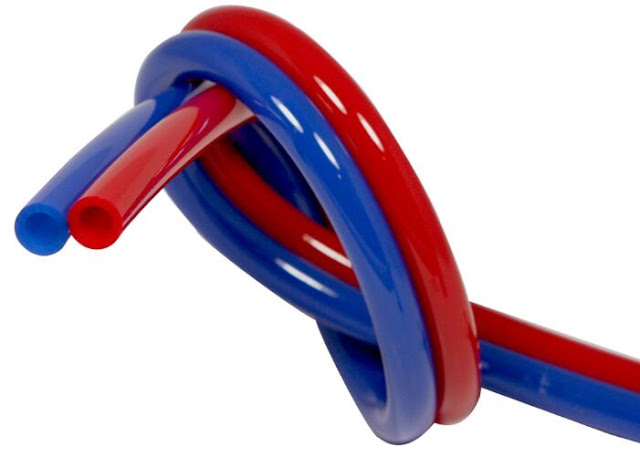PVC tubing exhibits excellent elongation and drape. It is typically used for lower pressure applications and for OEM designs with complex tubing pathways. Several grades of flexible PVC tubing, include:
Standard: optically clear, odorless, tasteless and nontoxic; FDA compliant.
Chemical & Petrochemical Transfer: Formulated for use in the transfer of chemicals and petrochemicals including gasoline, kerosene, oils, and cutting compounds.
Nylon-Reinforced: Inner braid of nylon provides four times the working pressure of standard PVC tubing; FDA compliant.
Steel Wire-Reinforced: Kink-free, crush resistant; FDA compliant.
Bev-A-Line: High purity process tubing is lightweight, optically clear and transparent, meets standards for food, beverage, pharmaceutical, laboratory and medical device use.
Micro-Line: Mini-bore, is nontoxic, non-contaminating, and biogically stable; well suited for medical and laboratory use.
APPLICATIONS:Medical, laboratory;Food and beverage;Drainage lines;Chemical rocessing;Semiconductor processing;Environmental;Industrial.

Fluorosint® 500 has nine times greater resistance to deformation under load than unfilled PTFE. Its coefficient of linear thermal expansion (CLTE) approaches the expansion rate of aluminum and is 1/5 that of PTFE — often eliminating fit and clearance problems. It is 1/3 harder than PTFE, has better wear characteristics, and maintains low frictional properties. Fluorosint ® 500 is also non-abrasive to most mating materials.
- Electrical and thermal insulation pads under compressive loads
- Bearings, bushings
- Good wear resistance
- Excellent chemical and hydrolysis resistance
- Good chemical properties
- Low coefficient of friction
- Very good dimensional stability
- Good electrical insulating properties
- Outstanding UV and weather resistance
- Inherent low flammability













